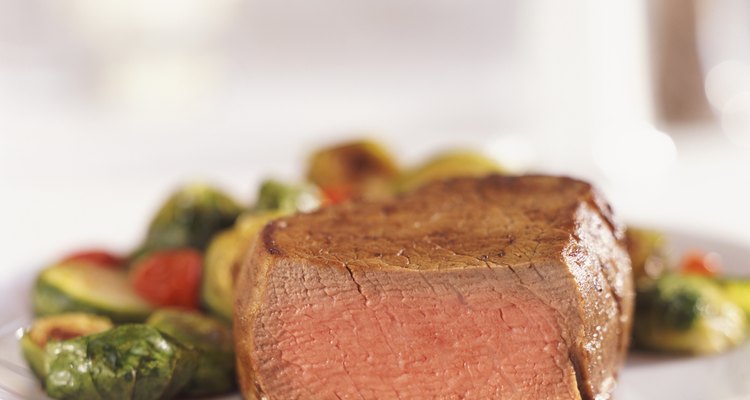
Sometimes, the pork chop on your plate looks a lot smaller than the pink, plump chop you removed from the wrapper. Most meat -- whether pork, beef or poultry -- shrinks during cooking. How much the meat shrinks after it's cooked depends on the type of meat, and the cooking method. A long period of dry cooking could see meat shrink by as much as 40 percent or more.
The Science of Shrinkage
Meat contains millions of coiled and tightly packed protein molecules. The protein is what holds meat together and gives it a firm, springy texture. Protein strands also trap moisture in the meat, with most meat made up of around 75 percent water, note the Exploratorium's Science of Cooking guides. When heated, the protein break apart and contracts. This forces water out of the meat, shrinking the overall size and reducing the weight. This is why your grilled pork chop weighs less than the raw, water-rich version.
Damp or Dry
Dry cooking methods cause meat to shrink more than "wet" cooking methods. For example, when beef chunks are stewed, the surrounding broth keeps the meat moist. But roasting, barbecuing or smoking meat can trigger faster shrinking unless you replace the juices or take steps to keep meat moist. For example, when roasting a ham joint, expect it to shrink by around 25 percent in weight.
Making the Cut
Meats of different types and cuts shrink at different rates. The general rule is that the leaner the cut, the less the meat will shrink. This is because the cut contains less water and fat. According to statistics from the U.S. Department of Agriculture, beef sirloin shrinks by around 16 percent when cooked, while brisket shrinks by around 30 percent. A broiled chicken wing may lose only around 14 percent of its weight, while a whole roast chicken may shrink by almost 40 percent. Cured roast ham may shrink by 8 percent, while a grilled pork patty could lose around 30 percent of its weight.
Slowing the Shrinking
Even when cooking meat using dry methods, you can reduce the amount of shrinkage. For example, ground beef patties will quickly lose moisture and fat when cooked at high temperatures. A moderate temperature helps them to retain moisture and weight. When barbecuing or roasting, drizzle juices over the meat regularly. Using olive oil or another type of fat on the meat also helps to keep water inside.
Related Articles

How to Tenderize Jerky

How to Cook Deer Brats

How to Make a Blackbuck Antelope Roast
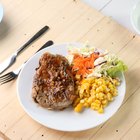
How to Cook Steak to Get the Most Out ...

How to Soak Deer Meat in Baking Soda
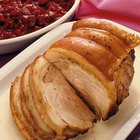
Does Cooking a Pork Roast Frozen Help ...

Difference in Cook Time Between Bone-in ...
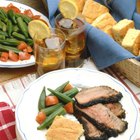
How to Cook London Broil

How to Fix a Washed and Damaged Wool ...
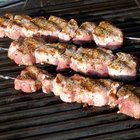
How to Cook Pork Loin

What Are the Dangers of Eating Venison?
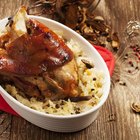
How to Cook Knuckle Roast

Different Kinds of Lunch Meat
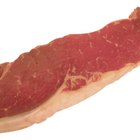
The Difference Between a Sirloin Roast ...
How to Keep a Smoked Turkey From Drying ...

Does Cooking at a Low Temperature for a ...
How to Slow Cook a Top Sirloin Round ...

Do Filet Mignon Steaks Come From Female ...

How to Cook a Pheasant Breast So That ...
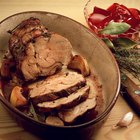
Does It Take Longer to Cook With the ...
References
Writer Bio
Based near London, U.K., Peter Mitchell has been a journalist and copywriter for over eight years. Credits include stories for "The Guardian" and the BBC. Mitchell is an experienced player and coach for basketball and soccer teams, and has written articles on nutrition, health and fitness. He has a First Class Bachelor of Arts (Hons.) from Bristol University.
Photo Credits
Digital Vision./Photodisc/Getty Images